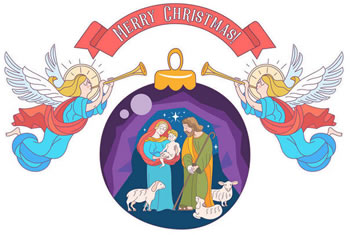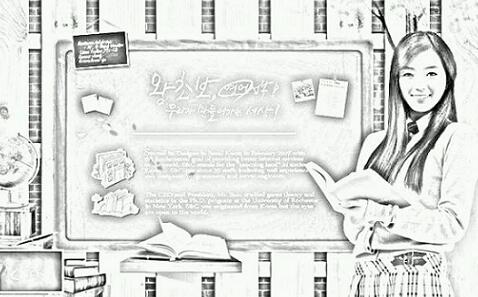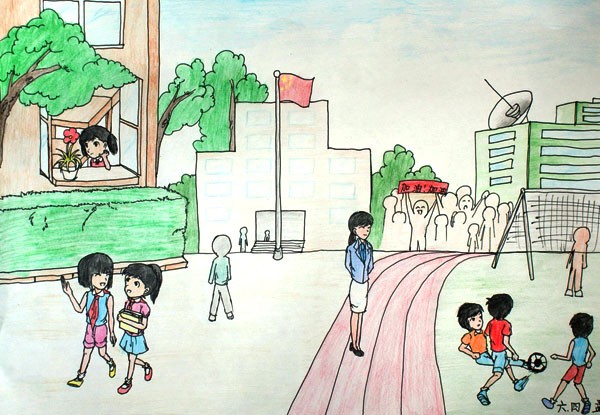
All over Britain on Christmas Day, families can be found sitting around their dining tables enjoying a traditional lunch of roast turkey with all the trimmings - and all, regardless of age, wearing coloured paper hats. It is rumoured that even the Queen wears her paper hat over lunch!
圣诞节当天,全英国的家庭都会坐在餐桌前,吃一顿传统的圣诞大餐,塞满了各种馅料的烤火鸡。无论年龄老幼,所有人都会在头上戴一顶彩色纸做成的纸帽子。据说,就连伊莉莎白女王也会戴纸帽子哦!
So why this quaint tradition? Where do these paper hats come from? The answer is the Christmas Cracker.
那为什么会有这个古怪的传统呢?戴纸帽子的传统来源于哪里?答案就在另一项圣诞传统活动……圣诞拉炮!
A Christmas Cracker is a cardboard paper tube, wrapped in brightly coloured paper and twisted at both ends. There is a banger inside the cracker, two strips of chemically impregnated paper that react with friction so that when the cracker is pulled apart by two people, the cracker makes a bang.
圣诞拉炮是用硬纸板做的纸筒,再用色彩鲜艳的彩纸包裹在外面,两端拧紧。在拉炮里会有一个爆竹,当两个人拉动拉炮两端时,拉炮里的两条浸渍纸就会发生摩擦,发出"嘣"的响声。
Inside the cracker there is a paper crown made from tissue paper, a motto or joke on a slip of paper and a little gift.
拉炮里会装有纸做的皇冠、写在纸上的名言或笑话,还会有一些小礼物。
Christmas crackers are a British tradition dating back to Victorian times when in the early 1850s, London confectioner Tom Smith started adding a motto to his sugared almond bonbons which he sold wrapped in a twisted paper package.
圣诞拉炮成为英国传统的历史可以追溯到维多利亚时期,约在19世纪50年代早期,伦敦的一个糖果商汤姆-史密斯把写有名言的纸片放在了他售卖的糖果包装里,包装方式就是在糖果外用纸将两头拧紧。
The paper hat was added to the cracker in the early 1900s. The cracker was soon adopted as a traditional festive custom and today virtually every household has at least one box of crackers to pull over Christmas.
到了20世纪初,纸帽子也被放到了圣诞拉炮里。很快,拉炮就成了英国人过圣诞节的传统习俗。现在,所有的英国家庭至少都会准备一盒拉炮留到圣诞节时来拉响。
【精读笔记:】
1.traditional[trə'dɪʃ(ə)n(ə)l]adj. 传统的
eg:Traditional teaching methods sometimes only succeeded in putting students off learning.传统的教学方法有时只会使学生们厌学。
2.cardboard['kɑːdbɔːd] n. [纸] 硬纸板
eg:Paper folds more easily than cardboard.纸较纸板易于折叠。
3.package ['pækɪdʒ] n. 包裹
eg:tore open the package.我撕开了那个包裹。
4.custom ['kʌstəm] n.风俗
eg:as a traditional festive custom作为一个传统节日习俗。
12月23日《世界上最遥远的距离》
学习笔记回顾:
1.distance ['dɪst(ə)ns] n. 距离vt. 疏远
eg:Clough felt he'd become too distanced from his fans.克拉夫觉得他变得太疏远他的仰慕者们。
2.resist [rɪ'zɪst] n. [助剂] 抗蚀剂vt. 抵抗
eg:Congress should resist the temptation to try quick economic fixes.国会应该抗拒尝试快速经济调整的诱惑。
3.yearning ['jɜːnɪŋ]n. 渴望
eg:He always had a yearning to be a schoolteacher.
他一直渴望当一名教师。
编辑:Liuxuepaper.Com
作文地带知识拓展:
圣诞节 Christmas 又称耶诞节,译名为“基督弥撒”是基督教纪念耶稣诞生的重要节日。亦称耶稣圣诞节、主降生节,天主教亦称耶稣圣诞瞻礼。耶稣诞生的日期,《圣经》并无记载。圣诞节(Christmas)是基督教纪念耶稣诞生的重要节日,定于每年的12月25日。这个节日起源于基督教,虽然《圣经》中没有明确记载耶稣的具体出生日期,但早期基督教会在公元336年将12月25日定为耶稣的诞辰,可能是为了抗衡罗马异教节日或综合多种神学、历史因素而定。
Christmas意为圣诞节,是纪念耶稣诞生的日子。 ‘Christmas’的基本定义 Christmas,中文翻译为“圣诞节”或“耶诞节”,是一个全球广为人知的节日。
Christmas 圣诞节
uk /ˈkrɪs.məs/ us /ˈkrɪs.məs/
(the period just before and after) 25 December, a Christian holy day that celebrates the birth of Jesus Christ
圣诞节;圣诞节期间
We're going to my mother's for Christmas.
我们要去我母亲家过圣诞节。
Merry/Happy Christmas!
圣诞快乐!
We had a fantastic Christmas.
我们过了一个愉快的圣诞节。
the Christmas holidays
圣诞假期









文档为doc格式
推荐阅读:





